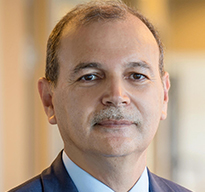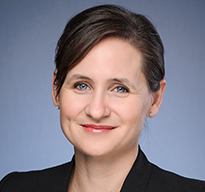Monday, August 21
There is growing recognition that a new energy paradigm is needed to curb the buildup of anthropogenic CO2 emissions in the atmosphere and the corresponding global warming related impacts. Many countries and companies are embarking on ambitious programs to reduce their carbon footprint and switch from carbon-intensive fossil fuels to greener energy feedstocks and carriers. This course is designed to help oil and gas professional position themselves for the impending energy transition by gaining an understanding of the relevant concepts/technologies and how they relate to their E&P expertise.
As part of the international effort to combat global warming, significant attention is being given to ways to sequester (store for the long-term) carbon dioxide, which is a major contributor to the greenhouse effect. It is therefore critical that there is a universal means to record the storage volumes by recognizing the maturity of the projects to be implemented and the confidence that can be placed in the estimated sequestered volumes.
This course will look at some of the ways in which carbon dioxide can be stored and provide a detailed review of the SRMS framework prepared by the Society of Petroleum Engineers to classify and categorize the storage volumes. The course will include example calculations to show how the storage quantities can be estimated.
In addition, the course will cover the economics of CCS in the context of the various carbon pricing and policy incentives that are being developed, with an assessment of the risks involved in capture, transport, and storage. The economic framework in which CCS operates around the world will be described, with examples given to illustrate how the investment case is evolving.
Although there are a number of business models emerging, the most popular of these will be set out, with a description of how risks are being assessed and allocated between project participants, host governments and lenders.
Tuesday, August 22
The challenge before us is real. How do meet the energy demands of today, while advancing a lower carbon energy future? Taking a pragmatic approach, Jeff will share his take on the solutions we need to supply reliable, affordable, and ever-cleaner energy to a growing world, and how collaboration is the key to accelerating the commercialization and adoption of new energies.

Jeff Gustavson
President
Chevron New Energies
Moderator

Stephanie Cox
TEN & Alliant Energy
Speakers

Matt Crocker
Senior Vice President
Low Carbon Solutions
Exxonmobil

Andrey Shuvalov
Vice President US Energy Transition
Shell

Adam Sieminski
Senior Advisor
King Abdullah Petroleum Studies & Research Center

Katharina Beumelburg
Chief Strategy & Sustainability Officer
SLB
| Time | Paper # | Presentation |
|---|---|---|
| 1002-1014 |
215732
|
Making an Impact: Protecting Guyana’s Forests While Growing Energy Production |
| 1016-1028 |
215757
|
Hybrid Natural Gas Geothermal Combined Cycle Power Plant Analysis |
The success of energy transition depends on the transformation of our global energy systems from the currently hydrocarbon-rich base to renewable energy sources by the middle of the century. New technologies and innovation are critical to the success of the transition. This also requires lowering the cost of the enabling technologies at scale. This session will cover some of the new technologies for producing renewables and extraction of various forms of clean energy.
| Time | Paper # | Presentation |
|---|---|---|
| 1030-1100 |
215750
|
Hybrid Uses of High-temperature Reservoir Thermal Energy Storage: Lessons Learned from Previous Projects |
| 1100-1100 | 215756 | Techno-economic Analysis and Market Potential of Geological Thermal Energy Storage (GeoTES) Charged With Solar Thermal And Heat Pumps Into Depleted Oil/gas Reservoirs and Shallow Reservoirs: a Technology Overview |
| 1130-1200 |
215751
|
Challenges for Repurposing Oil and Gas Wells for Geothermal Applications |

Lynn Orr
Professor
Stanford University
Presentations consider a wide range of technologies that are needed in an energy transition strategy that would be economic, safe, and satisfy environmental, social and governance needs.
| Time | Paper # | Presentation |
|---|---|---|
| 1330-1400 | 215735 | Solid Sorbent Direct Air Capture Using Geothermal Energy Resources (S-DAC-GT) - Model for Region Specific Economic Analysis |
| 1400-1430 |
215732
|
Making an Impact: Protecting Guyana’s Forests While Growing Energy Production |
| 1430-1500 |
215745
|
The Carbon Storage "Three-Legged Stool" to Facilitate Deployment |
| Time | Paper # | Presentation |
|---|---|---|
| 1502-1514 |
215752
|
A Novel Approach to Communicate a CO2 Storage Resources Management System Classification Framework |
| 1516-1528 |
215734
|
Co2 Leak Detection And Conformance Verification Using Borehole Gravity |
This session overviews various processes for robust screening and integrated assessment of CCS capacity, injectivity, well and containment integrity, process safety, carbon footprint and risk assessment. In-situ hydrogen generation in oil and gas reservoirs as well as the geomechanical effects of storing hydrogen underground are also discussed.
| Time | Paper # | Presentation |
|---|---|---|
| 1530-1600 |
215737
|
Well Engineering Aspects and Risk Analysis of Carbon Capture and Storage (CCS) Wells |
| 1600-1630 |
215725
|
Enabling Hydrogen Production from Shale Oil Reservoirs: An Experimental Study Using Microwave-Assisted Catalytic Heating |
| 1630-1700 |
215742
|
CCS Potential in Louisiana |
Wednesday, August 23

Damian Beauchamp
President & Chief Development Officer
8 Rivers
Moderator

Kamel Ben-Naceur
Nomadia Energy Consulting
Speakers

Auragni Jeanson
HR Director - New Energy, Strategy & Sustainability
SLB

Arthur Lee
Fellow & Principal Advisor
Chevron

Kurt Waltzer
Chief Executive Officer/
Managing Director
Clean Air Task Force

Yvette Baxter-Drayton
VP Process & Process Safety Engineering
BP
| Time | Paper # | Presentation |
|---|---|---|
| 1002-1014 |
215746
|
Addressing Data Center Cooling Needs through the Use of Subsurface Thermal Energy Storage Systems |
| 1016-1028 |
215726
|
Geo Thermal Energy Storage (Geo-TES) Using Traditional Oil Reservoirs |
This session enables a deeper dive into a range of technologies and methodologies that are focused on reducing emissions, primarily from the oil and gas industry, and a look at other emissions sources. The range of technologies and methodologies examined in the session will include leak detection technologies for fugitive emissions and for monitoring subsurface storage not only of CO2, but also hydrogen storage, to enable the development of a hydrogen economy.
| Time | Paper # | Presentation |
|---|---|---|
| 1030-1100 |
215754
|
Fugitive Emissions Study: How to Minimize and Control Methane Emissions While Utilizing Sand Separators |
| 1100-1130 |
215727
|
Transient Study of Carbon Dioxide Transportation Pipeline Rupture and a Novel Approach for the Carbon Dioxide Plume Containment |
| 1130-1200 | 210372 - Adapting Petroleum Reservoir Engineering Principles To Carbon Capture & Sequestration (ccs) And Hydrogen Underground Storage (HUS) Projects: Opportunities And Challenges |
Transitioning to a lower carbon future is not possible without trained professionals. This session contains both a presentation and a fireside chat that will address the topic of what skills, existing and new, are necessary now and in the future and the role of education and training institutions in preparing students and industry professionals with the skills and knowledge necessary to thrive in the energy transition.
Moderators

Tom Blasingame
Professor
Texas A&M University

John Boden
VP Information & Member Services
Society of Petroleum Engineers
Speakers

Birol Dindoruk
Professor
Unviersity of Houston

Flora Moon
Sustainability Practice Director
Expressworks

Jan Sherman
Chief Development Officer
Carbonvert
| Time | Paper # | Presentation |
|---|---|---|
| 1300-1330 |
215728
|
Be a Good Scientist First, and the Rest Will Follow |
This session explores the central importance of carbon management for accelerating the energy transition. The papers will address a number of questions, including what is required to advance our carbon management priorities as an industry. How do we deliver the radical transformation needed in the way we manufacture products, and consume energy, to reduce emissions at pace and scale? What approaches, solutions, and technologies can be deployed? Where does collaboration fit in this?
| Time | Paper # | Presentation |
|---|---|---|
| 1445-1515 | The Role Of Carbon-compensated Products In The Energy Transition | |
| 1515-1545 |
215741
|
A Novel and Scalable Carbon Management Strategy for a Just Energy Transition |
This panel session will set the stage to demonstrate the scale of the energy transition opportunity in terms of technology development and investment opportunities. We will address the challenge and opportunity of turning policy into approvable projects in order to deliver beneficial energy transition projects at scale to meet the global demand. Finally, we will explore community expectations for achieving successful project outcomes and unpack key concepts like social responsibility, just transition and environmental justice.
Moderators

Trey Shaffer
Environmental Resources Mgmt

Leon Beugelsdijk
Shell
Speakers

Kate Gilbert
Manager & Principal, Socioeconomic & Human Rights
ExxonMobil
Alexandra Guaqueta
Global Services Lead, Social Impact & Human Rights
Environmental Resources Management

Ashutosh Singh
Head, Energy Transition Program
S&P Global

Nate Teti
Vice President
US Government & Public Affairs
